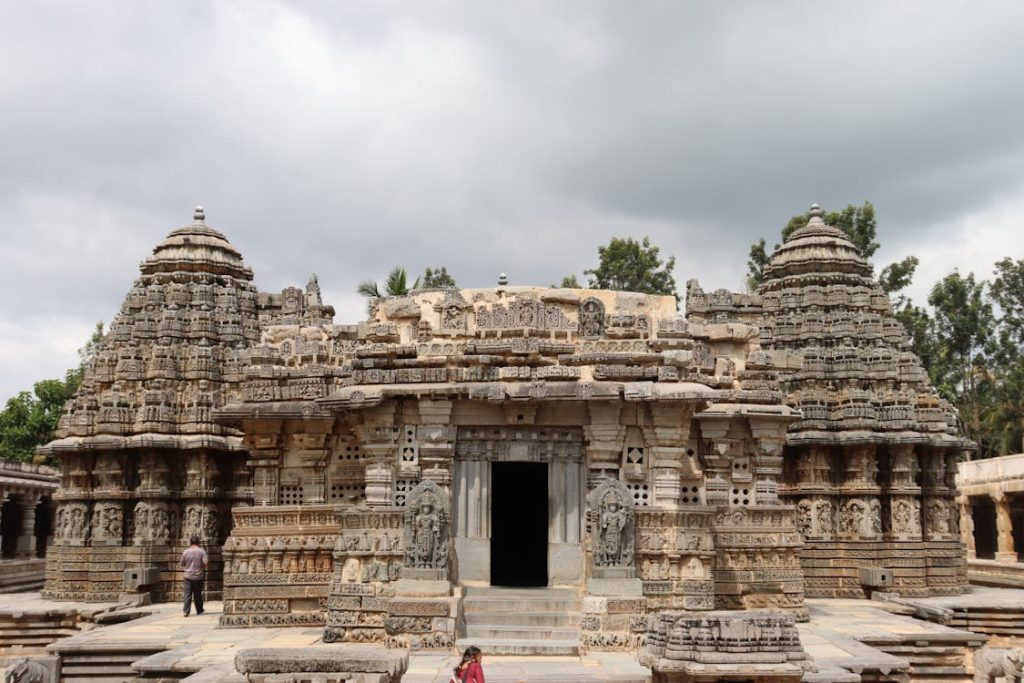Temple Description
The Hoysaleswara Temple, commonly known as the Halebidu Temple, is a significant 12th-century Hindu shrine dedicated to Lord Shiva. Situated in Halebidu, Karnataka, India, it stands as the largest monument in the area, which was once the capital of the Hoysala Empire. Commissioned by King Vishnuvardhana, construction began around 1121 CE and concluded in 1160 CE.
In the early 14th century, Halebidu suffered severe damage when Muslim armies from the Delhi Sultanate attacked and plundered the city, leading to the temple’s decline and neglect. Located about 30 kilometers from Hassan and 210 kilometers from Bengaluru, the Hoysaleswara Temple reflects the Shaivism tradition while also incorporating elements of Vaishnavism, Shaktism, and Jainism.
The temple consists of two main sanctums dedicated to the Shiva lingas of Hoysaleswara and Santaleswara, symbolizing the masculine and feminine aspects of divinity, with Nandi shrines positioned outside facing each linga. It also features a smaller shrine for the Sun god Surya. Originally topped with superstructure towers, the temple now presents a flat profile. It faces east, although visitors typically approach from the north. The structure is built from soapstone and follows a square layout.
The temple is renowned for its elaborate sculptures, detailed reliefs, and friezes that offer insights into 12th-century South Indian life and culture. Approximately 340 large reliefs illustrate Hindu theology and legends, while smaller friezes depict episodes from texts such as the Ramayana, Mahabharata, and Bhagavata Purana. Although some artwork is damaged, much of it remains well-preserved. Nearby, visitors can explore additional Hoysala architectural remnants, including the Jain Basadi complex and the Kedareshwara Temple.
In 2023, the Hoysaleswara Temple, along with the Chennakeshava Temple at Belur and the Keshava Temple at Somanathapura, was designated a UNESCO World Heritage Site as part of the Sacred Ensembles of the Hoysalas
